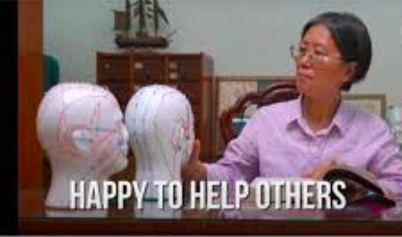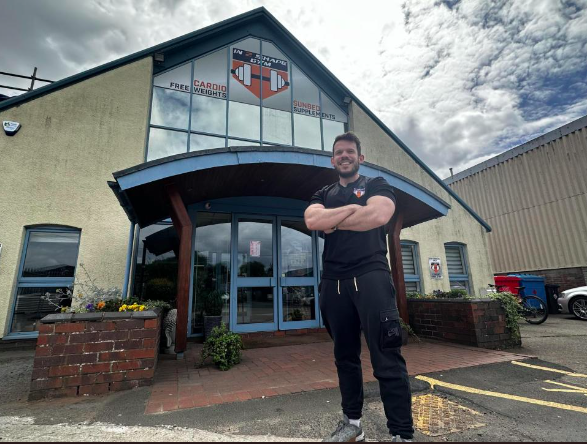Trending Stories
Christian Health Workers Urged to Uphold Commitment and Refrain from Strikes

Urged to Uphold Commitment and Refrain from Strikes: Koforidua Catholic Bishop Addresses CHAG
The Koforidua Catholic Bishop has issued a strong appeal to health workers in Christian health facilities, emphasizing the importance of their commitment to service and discouraging any form of strike action.
This message comes amidst rising concerns over labor unrest in various sectors across the country. The Bishop’s call highlights the unique mission of Christian health institutions and the ethical responsibilities of their employees.
The Context of the Appeal
The appeal by the Koforidua Catholic Bishop is particularly significant given the ongoing challenges in the healthcare sector. Issues such as inadequate remuneration, poor working conditions, and lack of essential resources have led to increasing frustration among health workers. Strikes and protests have become a common recourse for expressing grievances.
Christian Health Association of Ghana (CHAG)
CHAG is a critical component of Ghana’s healthcare system, providing approximately 30% of health services nationwide. These facilities are known for their commitment to compassionate care, rooted in Christian values.
The Bishop’s address underscores the expectation that workers in these institutions will prioritize patient care and uphold the ethos of service, even in challenging times.
Ethical and Moral Responsibilities
The Bishop’s message emphasized the ethical and moral obligations of health workers in Christian facilities. He reminded them that their roles go beyond mere employment, touching on their faith and commitment to serving humanity. The call to avoid strikes is framed within the context of these broader responsibilities.
Impact of Strikes on Patient Care
Strikes in the healthcare sector can have devastating effects on patient care, especially in rural and underserved areas where CHAG facilities often operate.
The disruption of services can lead to increased morbidity and mortality, particularly among vulnerable populations. The Bishop highlighted the potential harm to patients as a compelling reason to avoid strikes.
Alternative Approaches to Address Grievances
While acknowledging the legitimate concerns of health workers, the Bishop urged them to explore alternative methods of addressing grievances.
He encouraged dialogue, negotiation, and collaboration with management and relevant authorities to find amicable solutions. The emphasis is on maintaining continuity of care while seeking improvements in working conditions.
Support from the Church and Community
The Bishop assured health workers of the Church’s support in advocating for better conditions. He called on the broader community to recognize and appreciate the sacrifices made by these workers and to support initiatives aimed at improving their welfare.
The appeal also included a call for government and other stakeholders to address the systemic issues affecting the healthcare sector.
The Role of Faith in Healthcare
Faith plays a central role in the mission of CHAG facilities. The Bishop’s message reinforced the idea that health workers are called to their profession as a form of ministry.
This perspective encourages a higher level of dedication and resilience, even in the face of adversity.
Case Studies of Commitment
The article includes case studies of health workers who have demonstrated exceptional commitment to their duties, despite facing significant challenges. These stories serve as inspirational examples of the values promoted by the Bishop’s message.
Conclusion
In conclusion, the Koforidua Catholic Bishop’s appeal to health workers in Christian facilities is a timely reminder of the unique role they play in Ghana’s healthcare system.
By refraining from strikes and embracing their ethical responsibilities, these workers can continue to provide essential services to those in need.
The Bishop’s message calls for a collective effort to improve conditions while ensuring the continuity of compassionate care.
FAQs
1. Why did the Koforidua Catholic Bishop address the issue of strikes?
The Bishop addressed the issue of strikes to emphasize the unique mission of Christian health facilities and the ethical responsibilities of their employees. He urged health workers to uphold their commitment to service and avoid actions that could disrupt patient care.
2. What is the significance of CHAG in Ghana’s healthcare system?
CHAG provides approximately 30% of health services in Ghana, particularly in rural and underserved areas. These facilities are known for their compassionate care, rooted in Christian values.
3. How can health workers address their grievances without going on strike?
Health workers are encouraged to explore alternative methods such as dialogue, negotiation, and collaboration with management and relevant authorities. The aim is to find amicable solutions while maintaining continuity of care.
4. What role does faith play in the mission of CHAG facilities?
Faith is central to the mission of CHAG facilities, framing healthcare as a form of ministry. This perspective encourages a higher level of dedication and resilience among health workers.
5. How can the broader community support health workers in Christian facilities?
The community can recognize and appreciate the sacrifices made by health workers, support initiatives aimed at improving their welfare, and advocate for better conditions in the healthcare sector.
References
Trending Stories
Can Supplements Fix Belly Fat? Experts Weigh in on the “Cortisol Pouch” Myth
Trending Stories
Sister Regina Liu: Empowering Health Through Acupuncture

Sister Regina Liu: Empowering Health Through Acupuncture
In the bustling world of healthcare, Sister Regina Liu stands out as a beacon of holistic healing. Her journey into the world of acupuncture is not only inspiring but also transformative for the countless individuals she has treated.
Through her dedication, Sister Regina has brought traditional Chinese medicine to the forefront, offering an alternative and complementary approach to modern medical practices.
The Journey of Sister Regina Liu
Sister Regina Liu’s path to becoming a renowned acupuncturist began with her deep-rooted interest in holistic health. Born into a family that valued traditional Chinese medicine, Sister Regina was exposed to the benefits of acupuncture from a young age. Her early fascination turned into a lifelong passion as she pursued formal education and training in the field.
Acupuncture: Bridging Ancient Wisdom and Modern Health
Acupuncture, a practice with origins in ancient China, involves inserting thin needles into specific points on the body to balance the flow of energy or “qi.” Sister Regina Liu has mastered this ancient art, using it to address a wide range of health issues.
From chronic pain to stress management, her expertise has provided relief to many who had exhausted conventional treatment options.
Impact on Community Health
Sister Regina’s impact extends beyond individual treatments. She has been instrumental in educating the community about the benefits of acupuncture, breaking down misconceptions, and making the practice more accessible.
Her workshops and seminars have enlightened many about the holistic approach to health, emphasizing the interconnectedness of body, mind, and spirit.
Success Stories and Testimonials
The success stories of Sister Regina’s patients are a testament to her skill and dedication. Many individuals who had lost hope found solace in her treatments.
For instance, Maria, a long-time sufferer of migraines, experienced significant relief after just a few sessions with Sister Regina. Her story is just one of many that highlight the transformative power of acupuncture under Sister Regina’s care.
Challenges and Triumphs
Like any journey, Sister Regina’s path was not without challenges. Integrating acupuncture into mainstream healthcare faced resistance initially.
However, her perseverance and the undeniable results of her treatments gradually won over skeptics. Today, Sister Regina is not only respected in the field of acupuncture but also in the broader medical community.
The Science Behind Acupuncture
While acupuncture is rooted in ancient practices, modern science has begun to unravel the mechanisms behind its effectiveness. Studies have shown that acupuncture can stimulate the release of endorphins, the body’s natural painkillers, and improve blood circulation.
These scientific validations have further cemented acupuncture’s place in contemporary healthcare, thanks in part to advocates like Sister Regina Liu.
Acupuncture in Modern Healthcare
Sister Regina’s work exemplifies how traditional practices can complement modern medicine. Hospitals and clinics increasingly incorporate acupuncture into their treatment plans, recognizing its benefits in pain management, mental health, and overall well-being. This integration signifies a broader acceptance and understanding of holistic health practices.
Future Vision
Looking ahead, Sister Regina Liu envisions a future where acupuncture and traditional Chinese medicine are fully integrated into the global healthcare system. She continues to advocate for research, education, and policy changes that support the inclusion of holistic practices in mainstream medicine.
How to Get Started with Acupuncture
For those new to acupuncture, Sister Regina offers practical advice on getting started. She recommends finding a certified acupuncturist, understanding the treatment process, and maintaining an open mind. Her guidance helps demystify acupuncture, making it more approachable for newcomers.
Conclusion
Sister Regina Liu’s journey in empowering health through acupuncture is a remarkable tale of dedication, resilience, and success. Her contributions have not only alleviated individual suffering but also enriched the broader understanding of holistic health. As acupuncture continues to gain recognition, Sister Regina’s legacy will undoubtedly inspire future generations of healers.
FAQs
1. What conditions can acupuncture treat?
Acupuncture can address various conditions, including chronic pain, migraines, stress, anxiety, digestive issues, and more. It is also used to support overall wellness and balance.
2. Is acupuncture safe?
Yes, when performed by a certified and experienced acupuncturist, acupuncture is safe. It involves using sterile, single-use needles and adhering to proper hygiene practices.
3. How many sessions are needed to see results?
The number of sessions varies depending on the condition and individual response. Some may experience relief after one session, while others may need multiple treatments.
4. Does acupuncture hurt?
Acupuncture needles are very thin, and most people feel minimal to no discomfort. Some may feel a slight tingling or warmth at the needle site.
5. How do I find a qualified acupuncturist?
Look for acupuncturists who are certified by recognized professional organizations and have positive patient reviews. Personal recommendations and consultations can also help in making an informed choice.
References
Trending Stories
In 2 Shape Gym Unveils Major Expansion in Stourport
-

 Trending Stories1 year ago
Trending Stories1 year agoCDC: 1 in 4 Americans Still COVID-Free by End of 2022
-

 Health8 months ago
Health8 months agoHow Do Pawpaw Seeds Support Cardiovascular Health?
-

 Health5 years ago
Health5 years agoMeghan Trainor Shares Motivational New Song ‘Blink’
-

 Health2 years ago
Health2 years agoHow Long Does Monkey Pox Last Before It Surfaces in the Body?
-

 Health3 years ago
Health3 years agoWhat Causes Swollen Body? Understanding Edema and its Triggers
-

 Health3 years ago
Health3 years agoNutrition and the Importance of a Fitness Program – 3 Things to Know
-

 Health3 years ago
Health3 years ago5 Weird Reasons Why Pimples Disappear After Marriage
-

 Health3 years ago
Health3 years agoHealth Benefits Of Pawpaw Seed? 7 Things To Know







